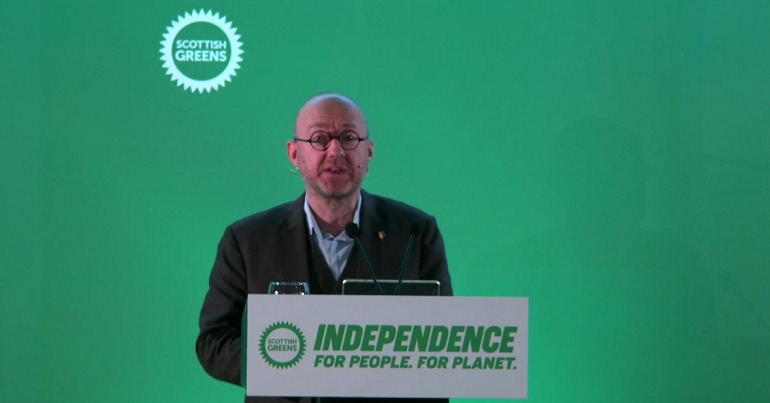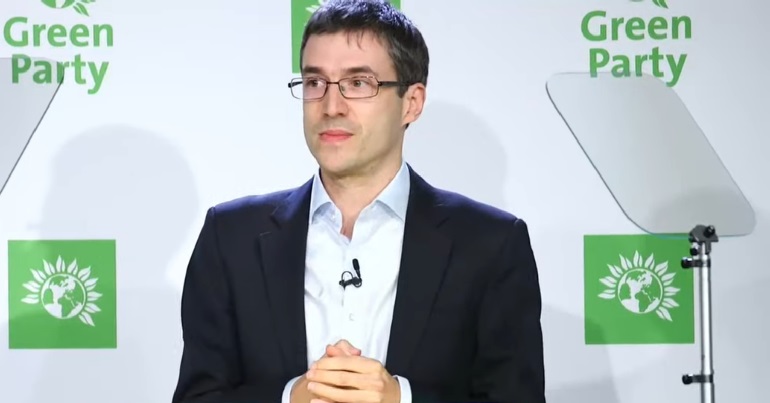The system that plays those that it is supposed to help

Sophie is a writer and educator based in Glasgow and a volunteer with Unity Centre Glasgow.
Amidst a media war on immigrants and the politics that plays to it, claims of bogus asylum seekers ‘playing the system’ are rife. For the past year and a half, I have volunteered with the Unity Centre, a support centre working in solidarity with asylum seekers and other immigrants, based in Glasgow. In my observation, in fact, ‘the system’ is much more likely to play those seeking asylum.
Recently, it was ruled that the ‘Detention Fast Track’ system was conducted in an unlawful way that carried too high a risk of unfairness. In Detention Fast-Track, Asylum cases are given an initial, cursory examination, after which some are ‘fast-tracked’ – it’s decided they can be determined quickly. This really means that they can be rejected quickly – asylum claims that are accepted, even the first time round, have virtually always had to go the long way. If a case is fast-tracked, the asylum seeker is detained – imprisoned – whilst their entire case is considered, and it is rushed through the system. This doesn’t allow time for measured consideration of a case on its merits. It also doesn’t allow the person putting in the claim time to gather evidence and often means that their case is well underway before the claimant has had an opportunity to find a solicitor.
In fact, this is only one of myriad ways in which the UK’s asylum system is (a) cruel and (b) designed to refuse as many cases as possible – rather than to genuinely determine whether a case is ‘legitimate’ (within the already far too-narrow limits of British and international laws).
Another example of the latter is found in the way that interviews about asylum cases are conducted; after a brief initial interview, someone seeking asylum undergoes a ‘substantive interview’ in which the facts of their case are to be established – and which is highly significant to their claim. I have read numerous transcripts of substantive interviews, as well as Home Office decisions on the basis of these interviews – and had discussions with people who have been interviewed. Interviewees are held to an absurd standard of consistency in being asked to relay, in detail, events that often go a number of years back. For example if, in response to a question about what they did on a day, 3 and a half years ago, where something relevant to their asylum claim occurred – suppose, for example, that this was a day on which they had encountered someone who was later to attack them. An interviewee’s response might include the claim that they had left someone’s house in the late afternoon. ‘Could you be more exact about the time?’ an interviewer might ask. The interviewee considers. ‘5pm.’ ‘What day was that?’ ‘I think October 1st.’ This might be at the beginning of the interview. Five hours, a lunch break, and a gruelling conversation about the worst experiences of their life with hostile strangers later, they might be asked again what happened on that day. They might respond, with similar uncertainty, that they had left about 3, and it was October 8th. This inconsistency will be dredged up, in the perhaps years to follow, before their case is finally decided, as evidence that their asylum claim is not credible. I am certain that, if I were obliged to have a similar conversation, I would make numerous such slips. And if someone initially finds it difficult to talk about traumatic experiences? Their account is considered less credible – the basis of their asylum claim false.
Whilst awaiting the outcome of their applications, those seeking refuge are treated as an underclass (not the only one in modern Britain). They are not allowed to work, so they cannot support themselves; they are provided with very basic housing and £35 a week. This is, of course, less than they would receive on benefits, and much, much less than minimum wage. Let’s not even touch on living wage. If someone claiming this support gets any extra money – for example, if a friend gives them £10 for a birthday present – they must declare it and have this deducted from their allowance. They are, in short, not permitted any means of raising their standard of living above the poverty line. Often, people are left in this situation for years. Leave aside for now the fact that Britain has a massively ageing population, and that an influx of labour would be beneficial; also that many asylum seekers bring highly-valued skills that could enrich the British economy and populace: asylum seekers make up a statistically negligible portion of the UK’s population – there are approximately 23,000 asylum seekers in the UK – that’s roughly 0.0359% of the total population. There is no economic rationale for constraining asylum seekers to abject poverty whilst their cases are considered; it is simply a move designed to make their lives here as unpleasant as possible. It is an act of grotesque cruelty inflicted on one of society’s most vulnerable groups.
Typically, in the course of an asylum claim, those seeking asylum might be detained, on and off, for substantial periods of time – imprisoned, without being even suspected, let alone convicted, of a crime. This is supposed only to happen if their removal is imminent, but very often, their removal is postponed or cancelled and they are not immediately released. Some individuals are held in immigration detention for over a year. Typically, if someone’s deportation is cancelled on legal grounds – for example because they have gathered new evidence for a fresh asylum claim, or because a judge rules that their case was not fairly considered the first time round – they are generally released, provided they have a lawyer to apply for their release. However, following release, an asylum seeker claiming support is no longer entitled to £35/ week in cash, but on a card or vouchers, which can only be used at certain supermarkets and with which they are not allowed to buy cigarettes, alcohol – or phone credit. This last one makes it very difficult for people to keep fighting asylum cases – they need phone credit to call their lawyers. This is also, obviously, massively stigmatising.
There is much talk of ‘bogus’ asylum cases; there is a twisted kind of truth in this talk, but it is not the claims on which they are based, but the system through which they are processed that is bogus. A tiny portion of the world’s asylum seekers come to Britain. They have often fled violent persecution – frequently having been subjected to torture and gang rape, and seen family members murdered – and are afraid for their lives should they be forced onto a plane to their country of origin. We treat them like criminals.



Asylum seekers need to find work, so that they can start their live over. The society have to help them integrate.
Excellent and important article.
I was involved in an asylum seeker case in Guyana – which is the only country in mainland Americas not party to any international law on the rights of refugees. Here asylum seekers are not recognised, and not only are they treated as criminals, by law they actually are considered criminals.
I thought in the UK things were better… but this confirms it is one thing to have nice words on a paper, but quite another to carry them out in practice.
Wish you all the best with this valuable work Sophie!
Correction: there’s a typo on the percentages. It should be 0.0359%